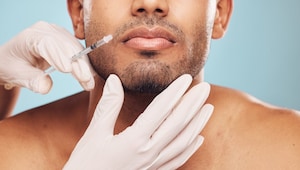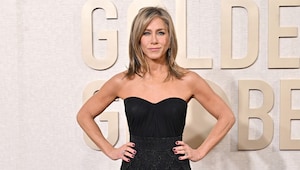How to Deal With Hair Fall After Recovering From COVID-19
A battle with COVID-19 can take a toll on your hair, here's how you can avoid losing your hair (and sleep!) with expert-approved hacks.

The past few months have been quite stressful for everyone. Not only are we living in isolation to keep everyone safe but we are also battling a novel virus that throws new medical curveballs every day.
According to some healthcare professionals, many COVID-19 survivors are reporting hair fall following their recovery from the illness. So, if you are noticing the same, here's help. Experts have pointed out that this is not hair fall but hair shedding that is usually exacerbated by emotional stress.
Dermatologist and cosmetologist Dr Smriti Naswa, Fortis Hospital, Mulund also offers some possible causes of COVID-19 induced hair loss.
She says, "Scientific experts have established that the novel Coronavirus sometimes manifests itself in completely incomprehensible ways. Every day, scientists and medical experts are learning more about how the virus attacks our body and its effects. Researchers are also trying to analyze the side effects of certain medications administered during the treatment. Hair loss and acne are common side-effects seen in the aftermath of COVID19."
Dr Naswa also adds that this hair loss is due to Acute Telogen Effluvium. This is a temporary condition where people experience excessive hair shedding after a stressful life event, usually after or within 3 months of the stressful event.
Well, about 85 to 90 percent of the hair on your scalp head are in the ‘anagen phase’ or the active stage of growth. The remaining 1 percent are in the catagen (transition) phase and 10 percent of the hair are in a resting phase aka the ‘telogen phase’ before they finally shed (exogen). However, when you are stressed or battling a serious illness, most of your hair go in the resting or telogen phase after which they shed and get replaced by new ones.
In short, it may take about 3-4 months for your hair to regain its former glory.
So, how can you speed up the process?
Dr Naswa says, "Proper nutrition can go a long way in minimising the hair damage. So, eat foods rich in vitamins, minerals, iron, calcium, and proteins. If a proper diet is not maintained, the hair loss may get prolonged. You should not panic and seek help from your dermatologist. They will rule out predispositions and hereditary factors that might get unmasked with your hair loss. I recommend eating a rainbow diet. Eat 2-3 fruits each day, vegetables, millets, grains, legumes, and good fats. However, beware of going overboard with protein consumption."
more from Beauty

The rise of Brotox: Memes about male celebs looking *different* are rife - what's really going on?

These five chic haircuts make thin hair look thicker and fuller

What are sad girl dinners and careless coffees?

Why 'The Devil Wears Prada 2' isn’t about nostalgia, but power dynamics

Skincare date nights in are the low-key romantic idea couples are loving right now

From pyjama workouts to Traitors on the treadmill: 8 people on how they learned to love exercise

From courts to catwalks—the wild backstories of the world’s most iconic sneakers

“All eyes on the midriff” should have been the only instruction given at the 2026 Grammy’s

Sip, flirt, repeat: Inside New Delhi’s most discreetly delicious cocktail bar

Is 'Bridgerton' season 4 saving its juiciest drama for Part 2?
